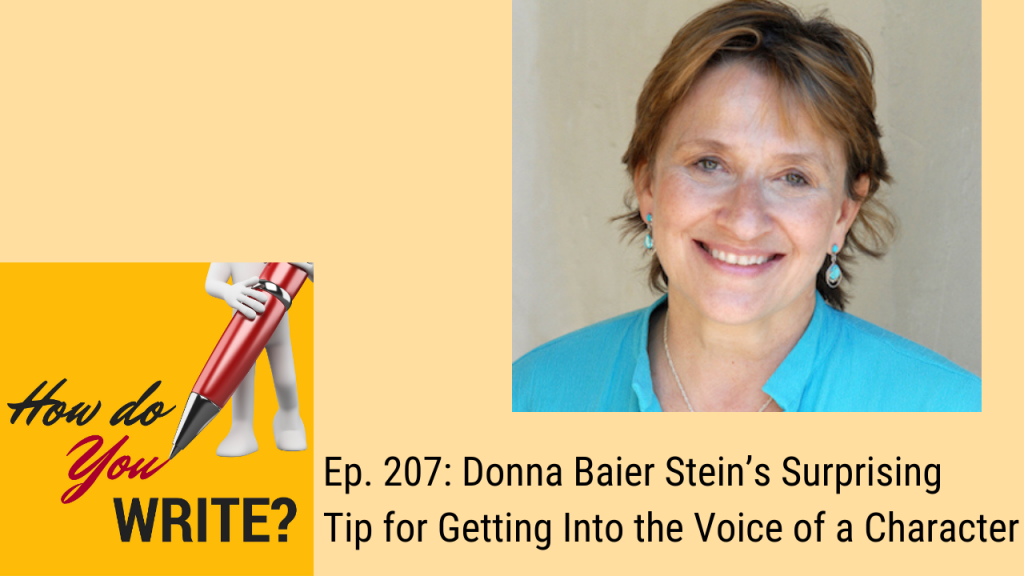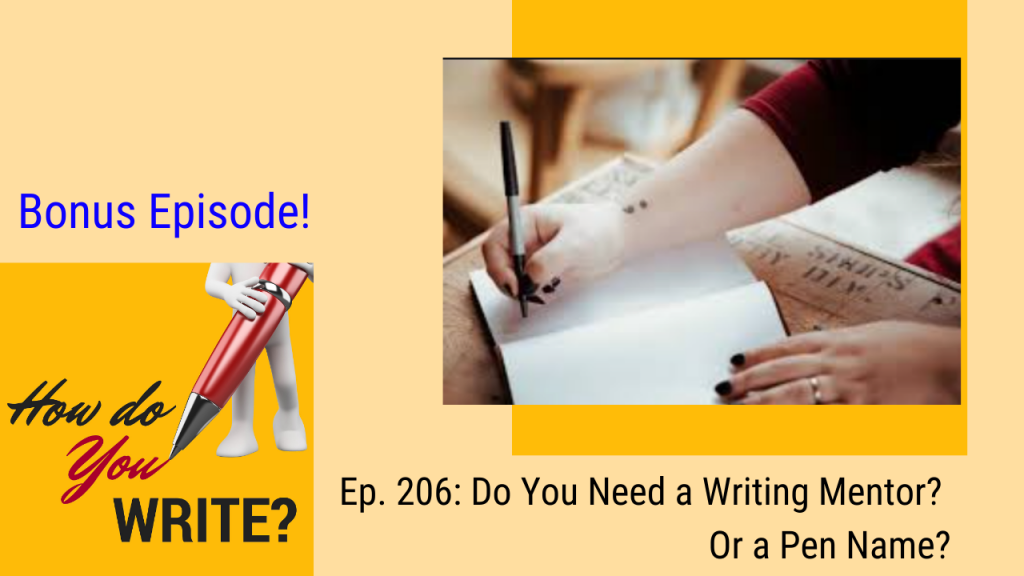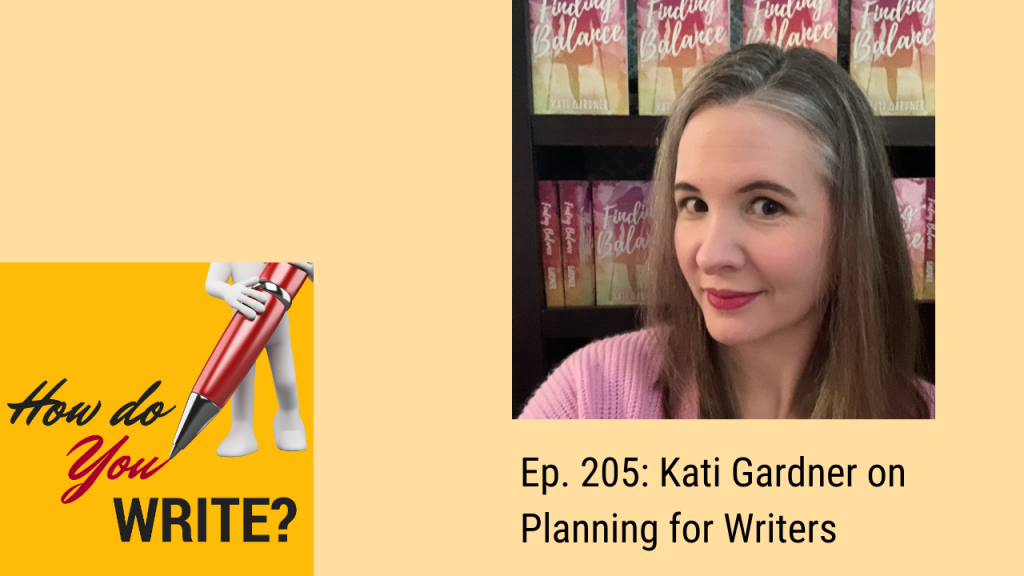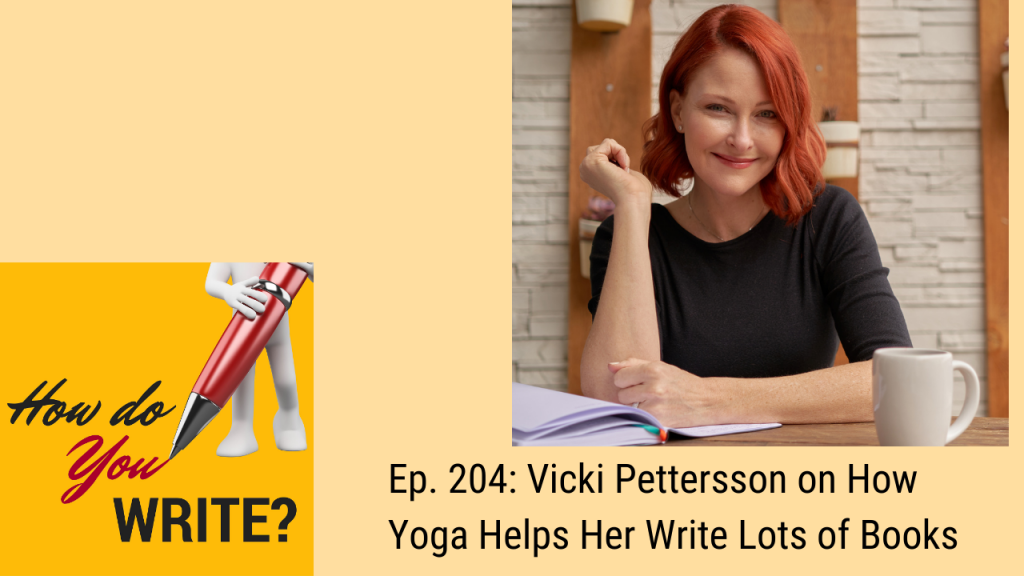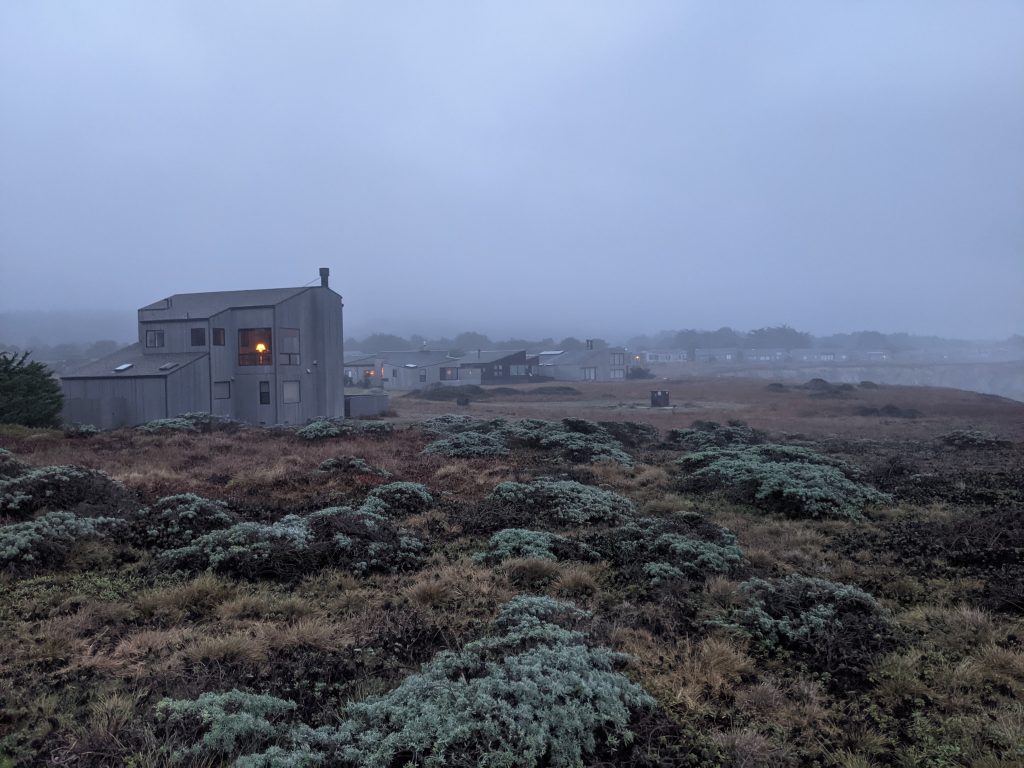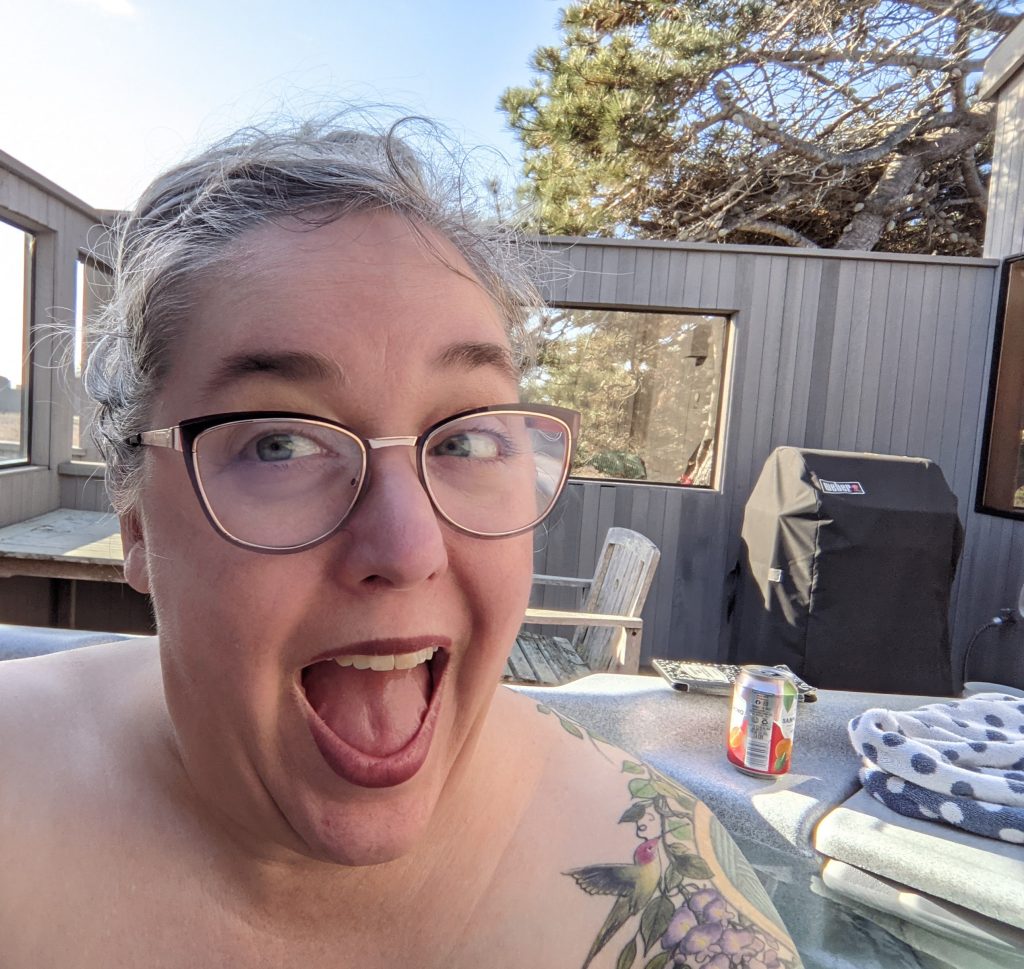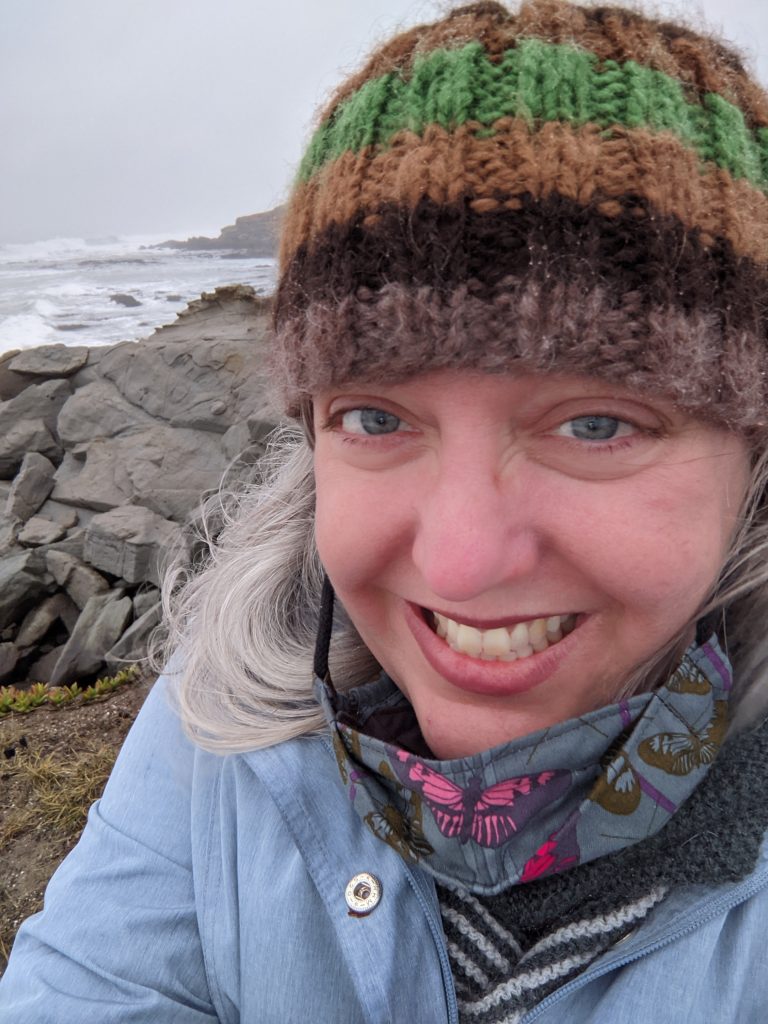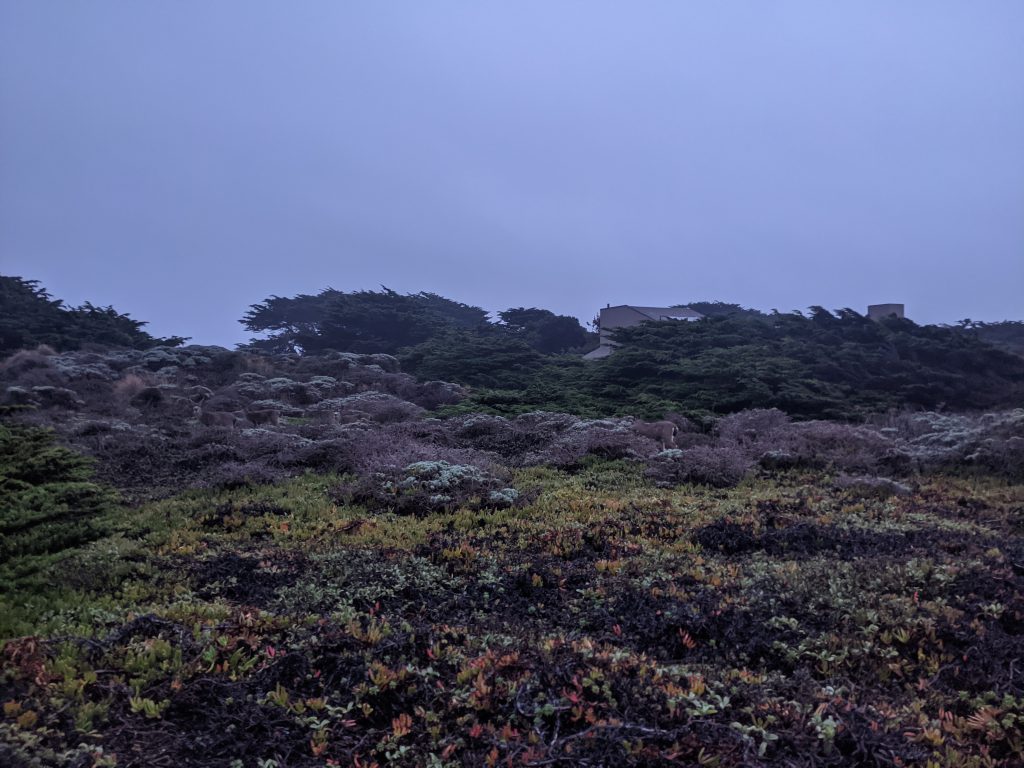C. J. Cooke is an award-winning poet and novelist published in twenty-three languages. She teaches creative writing at the University of Glasgow, where she also researches the impact of motherhood on women’s writing and creative writing interventions for mental health. The Nesting is her most recent release.
How Do You Write Podcast: Explore the processes of working writers with bestselling author Rachael Herron. Want tips on how to write the book you long to finish? Here you’ll gain insight from other writers on how to get in the chair, tricks to stay in it, and inspiration to get your own words flowing.
Join Rachael’s Slack channel, Onward Writers!
Enter for a chance to win her book! CLICK HERE.
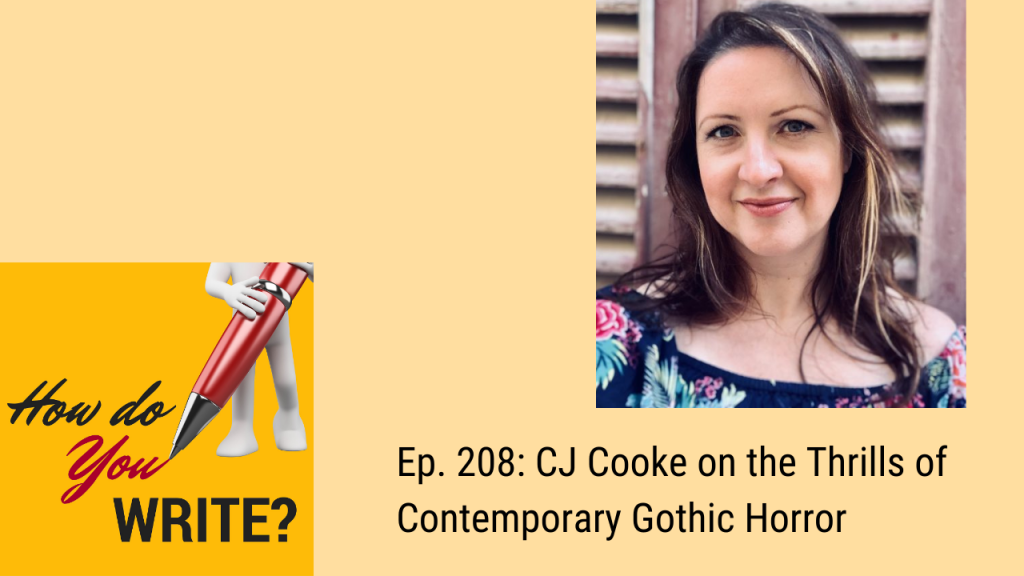
Transcript
Rachael Herron: [00:00:00] Welcome to “How do you Write?” I’m your host, Rachael Herron. On this podcast, I talk to authors about how they write, what their process is and how their lives fit together. I’ll keep each episode short so you can get back to writing.
[00:00:15] Well, Hello writers! Welcome to episode #208 of “How do you Write?” I’m Rachael Herron. Absolutely thrilled that you’re here today because we are talking to C.J. Cooke who wrote a book called The Nesting, which blew my damn mind, it’s a really excellent representation of gothic horror, or gothic thriller really straddles the line there. And it scared me and it kept me up and it most of all put me into a place where I usually am not. In the snow, in the cold, and it was really, really, really beautifully written and kept me on the edge of my seat so I was so thrilled to talk to CJ about this. What happens sometimes, and you’ve heard me talk about this before, is that publishers will reach out to me and ask me to talk to some of their writers and I will say yes to the ones that I’m interested in and no to the ones I am not. And I was interested in CJ and I got the net galley version, so I could read it on my Kindle. [00:01:23] However, they also sent me a paper back. So I’m trying to divest of belongings as we get ready to move to New Zealand, sometime in the next six months to a year. So I don’t need copies of books. This one is un-cracked, I’ve never opened it and I would love to give it to someone. So if you are interested in winning a copy of CJ’s book, go to RachaelHerron.com/Win. RachaelHerron.com/Win, you can sign up for that if you’re interested and also I have a large confession to make. Probably about a month ago, I also had an extra copy of Becca Syme’s Dear Writer, You Need to Quit. That is a hugely popular, popular episode of the show, everybody loves listening to Becca Syme talk. The book is fantastic. You need it. And about a month ago, I said I had a copy and I would give it away to somebody in a drawing. For the last month, I will admit this to you. I have not been able to find the sheet on which I tallied the entries. I can’t find it, every single Thursday as I go to set up Friday’s podcast. I look for it and I’m giving up. I’m giving up. So I apologize to those of you who entered last time. Please enter again, same place RachaelHerron.com/Win. And that is a drawing for either CJ’s, Nesting book or Becca’s Dear Writer, You Need to Quit and either of which if you win it, I will be happy to send it to you and I know you’ll be happy to get it. So come over and enter for that. I would really love to send these out international is okay. I’m willing to pay the money to ship a book to you. So please come over and enter. [00:03:12] And what else is going on? Well, the big thing that’s going on of course is National Novel Writing Month, which I am 5 days deep and so far I’m behind. And that is okay. I did the first 3 days’ spot on, even November 3rd, the day we were all glued to the news and we’re still glued to the news over here in America because, wow. Anyway, I actually wrote on that day because it was a Tuesday and I had Rachael Says Write where we gathered together and write together. So I really, really needed that. We also have that this afternoon and I’m using it however, yesterday was our recovery day after the election. And I had given myself the entire day off and I meant it, which is sometimes hard for me to do so I did nothing. I played some Poker online with no money just playing on the game because I’m trying to learn Texas Hold ‘Em, I’m very, very interested in poker right now, because right now I am reading The Biggest Bluff: How I Learned to Pay Attention, Master Myself, and Win by Maria Konnikova and it is so good. It’s about a woman who decides to learn Texas Hold ‘Em, in order to write a stunt memoir in which she spends a year doing that, and then enters the world series of poker. And I will not tell you how it goes. It’s just really beautifully written and I’m deeply into it in the way she looks at the way humans make decisions as she was writing this book. And I have gone on a tangent to tell you, I played poker on November 4th, instead of writing my words. And you know, what, what I want to say to everyone right now is that is okay. It is always okay. No matter what your goal is, if your goal is to win NaNoWriMo and write 1,667 words a day, fantastic. Knowing your goal is huge. In my classes, I’m constantly talking about rejiggering our goals. You can look ahead, see how many days you have to write until your specific goal, which could be anything. [00:05:21] Tell yourself the number of words you have to write in a day in order to hit that. And if you don’t hit it, rejigger. Rejigger, move the date out, move your numbers up. Those are the two things you can do. However, for NaNoWriMo, this is my decision this year and I’ve never done it this way. In the past, I have let myself get very far behind in NaNo and then I get frustrated and then I just kind of give up and I write wherein when I can and I stop tracking my numbers. This is what I decided even before NaNo started this year. On a day that I don’t write, on the day that I don’t get those 1667 words, I am not going to try to make them up. What instead, I will do the next day is try to get 1,667. And I will try to do that every day in the month of November. If I end up short on words, fantastic. I’ll probably still end up with 40 or 45,000 words and if I go over, fabulous and I hit it and I win, great. No matter what though, this will net me more words than giving up on day 10 when I’m three days behind, which happens so often with NaNoWriMo and which happens so often with our goals, the, the goal of goals is to set that goal and show up. [00:06:39] What we don’t want goals to do is start punishing us because we’ve gotten so far behind. When we get behind, we reset, we rejigger, we move the starting point again for us and we move it again and again and again, and I have to tell you when I’m on serious deadline, I rejigger almost every day for about the last month that I’m on deadline, because I’m constantly either writing more than I thought or lots more often, fewer words than I thought. Rejiggering is the name of the game and you get to do it in any way that you want in any way that helps you best. So I hope that that helps to hear, I hope that some of you listening are participating in NaNoWriMo. You can always come and find me over at RachaelHerron over there. I think that’s who I am. Either that, or Aryana Gogo, I lost my account for a couple of years, couldn’t remember how to log in. So I made a new account, so I think RachaelHerron is the one I’m at right now. Okay. That’s about it. Let’s get into awesome interview with CJ Cooke. I know you’re going to adore her. Don’t forget to come by and enter for a chance to win her book RachaelHerron.com/Win. [00:07:48] I’m all out of a patron mini coach questions too. So if you are supporting me at the $5 a month or up level, please send me some questions. I’d love to do another mini episode. Those make me really, really happy. And you know what else makes me happy? Knowing that you’re out there writing too, that we are doing this together and that we are struggling and failing and exalting and having a wonderful time sometimes. Remember that this is fun. Look for the joy inside your writing. And we will talk soon my friends, happy writing. [00:08:24] Hey, you’re a writer. Did you know that I send out a free weekly email of writing encouragement? Go sign up for it at www.rachaelherron.com/write and you’ll also get my Stop Stalling and Write PDF with helpful tips you can use today to get some of your own writing done. Okay, now onto the interview.Rachael Herron: [00:08:40] Well, I could not be more pleased to welcome to the show today, CJ Cooke. Hello, CJ.
C. J. Cooke: [00:08:44] Hi there. Thanks so much for having me.
Rachael Herron: [00:08:46] I am absolutely thrilled. If anybody’s watching the most people listen to this as a podcast, but if anybody’s watching on the YouTube, we get to see Ralph, the cocker spaniel who is so, we had a cocker spaniel dachshund mix for a while, and her face looked like his.
C. J. Cooke: [00:09:04] Really
Rachael Herron: [00:09:07] It’s, I saw him already and I’m in love with him. Let me give you a little bio before we get started. CJ Cooke is an award-winning poet and novelist published in 23 languages. She teaches creative writing at the University of Glasgow, where she also researches the impact of motherhood on women’s writing and creative writing interventions for mental health. So the creative writing interventions for mental health is so fascinating to me. And I am reading your book that by the time this podcast goes out is called The Nesting, and it is truly CJ, exactly what I wanted to read
C. J. Cooke: [00:09:42] Yay
Rachael Herron: [00:09:43] It, you know, in this time of weirdness and strange things going on, I just keep going to scary things.
C. J. Cooke: [00:09:50] Yeah.
Rachael Herron: [00:09:51] Not very pandemic things, but I want truly scary and there was one night, a couple of nights ago I couldn’t sleep after reading your book. And I was fighting a headache and I turned on, I turned on a meditation that I like to use, and in this meditation, he walks you through cities and then out into the country. And my brain kept getting confused and I was in Norway and I was running from thing, so beautiful. So I’m loving it. So thank you for that.
C. J. Cooke: [00:10:18] I’m so pleased. That’s good to hear.
Rachael Herron: [00:10:20] So this is a show about process and you had an interesting process for this book. You actually got a grant to go to Norway, right?
C. J. Cooke: [00:10:27] Yeah, I did. I hadn’t been before. Oh, it was absolutely transformative. You know, I, I, I recommend highly. I feel like I can only ever write again, if I’m on a boat sailing around the West coast of Norway, so, but no, I- I hadn’t been to Norway before, before I wrote The Nesting. But when I was plotting the book, I’m thinking about the particular tone I wanted for the story, because I knew it had to be a Gothic and which was a departure for me. But I, I have particular thoughts about the relationship between Gothic and despair and I, I can talk about that, but I think that the Gothic is sort of the genre of the moment, because it you know, really speaks to what we’re going through. But,
Rachael Herron: [00:11:06] Yeah
C. J. Cooke: [00:11:07] So I, I knew I needed a setting that was going to be, you know, really sort of beautiful, but hostile and not very human friendly. And that’s particularly with Norway is that it’s this place that is so gorgeous, but you know, it doesn’t look like a place or it doesn’t feel like place that human should be in. You feel like you’re encroaching upon this terrain that that is not for you which I loved. So, but yeah, I decided that that was the spot for the book. And I applied to the arts council and they were so wonderful because they give me a ground on that meant I could go. I went four times.
Rachael Herron: [00:11:44] Oh wow!
C. J. Cooke: [00:11:45] I know. Well, so I had to go to also to chat with, I had to go to also, I had to also to chat with them, the co-director of the office of Nordic architecture or the Nordic office of architecture, because the book involves architecture
Rachael Herron: [00:12:02] In a very deep way. Yeah
C. J. Cooke: [00:12:04] Yeah. It’s sort of part of the story is that the reason it’s set in Norway is that this architect is these from London. And he’s building this high concept eco-friendly summer home in this, in the wilds of Norway. And so I’m not an architect and when I did do a lot of research into just general architecture, but in particular it’s, it’s, it’s sat in, in Norway and I needed to know the kind of policies and what I couldn’t make that stuff up. You know, I had to get it right. So I went to speak to him and all this low, and that was, that was terrific. And he really gave me good guidance, but then I did feel like I just needed to be, I didn’t know much about Norway. I did know that it’s a very progressive society and not politically for me was, was very appealing for that thread in the book, the politics of the book and I also wanted to say what climate change looks like in the Arctic, because I had heard that it’s most visible there and I, you know, I’ve nothing to compare it to it’s not, you know, but I did speak to I went to this little fishing village at the very top of Norway, in Finmark beside the Russian border. There’s only like 60 people in this little fishing village. So I was chatting to them and, and from that those conversations, I was able to get much more insight into, you know, it’s stuff that you maybe can’t find online. So it’s just being there, experiencing the place, experiencing what it’s like to, you know, for there to be new song. It was just dark all the time. And there was two hours in the day where it was slightly like dusk, but not sunny or anything like that. I thought, how do people live? You know, but they, they do and they’re happy. But it was just phenomenal. I love Norway and I would move there. So good.
Rachael Herron: [00:13:51] Well, I think at your knowledge and all of that study comes through it and it comes through in the exact perfect way for a writer to place it. It’s never heavy handed. It just feels like being there and we’re with both of these female characters and it’s, it’s pretty funny because this morning I was pulling up your bio so I could read it. And, you know, looking at the press materials that the publisher sent me and I realized, Oh my God, it’s, it’s a Gothic. And that is how you have contemporized it. Is that, is that a word? Yes. Is that, I’m a huge fan of the Gothic I was raised on Mary Stewart. I love a woman on a cliff side and I hadn’t put it together that it was, it was so obviously a Gothic you’ve, you’ve really recast it in this contemporary way.
C. J. Cooke: [00:14:39] Yeah, I, I think it was very, because I didn’t have a necessarily light bulb moment where I had this story just there, it came in sort of little drips and drabs, and I knew the sort of things I wanted to write about. And I wanted to write a book that I would read, which is a good idea. Yeah, I, I wasn’t shooting the gothic though. I get quite nerdy about form on John Roe and things like that. So I knew specifically this is going to be a Gothic, as I said, I am interested in the relationship between the Gothic and despair. And I think that, you know, the Gothic examines the unspeakable attributes of despair and the ways that it’s, it’s very surreal, or the way that reality kind of gets tipped upside down and the, the logical world and the rational world cease to exist and the unknown is thrust to the forefront. So I just think that this kind of you know, the state of despair when there’s no solution, then, then what is that? It’s, it’s despair,
Rachael Herron: [00:15:48] But you up the stakes, even more by making our main character main, main character, have mental health issues. Can you speak to that? Because that’s incredibly beautiful where she sees when she sees things that don’t make sense, she cannot trust herself.
C. J. Cooke: [00:16:03] Yeah. So Lexi came sort of fully formed it’s funny because when I was planning this story, I kind of felt it was going to be this quite serious, scary story, obviously, very sinister. And so I start writing it and Lexi just comes in and has the sort of humor. She’s very funny and
Rachael Herron: [00:16:27] Yeah. Witty.
C. J. Cooke: [00:16:29] Yeah. And she’s quirky and kind of just, I just thought she was phenomenal to write. I just thought she was just this really, really interesting character that I didn’t have to sit down and, you know, do character interviews and choose her or anything like that. She was just there. And so I just had this fun writing her. I mean, I think a lot of writing is going with what works. You experiment, if it seems right, you think right. That’s, that works and I’ll keep that. With Lexi, you know, I hadn’t plotted the story when I started that, an idea of some elements. And I wrote the first three or four chapters, which remained in the, as they are in the book.
Rachael Herron: [00:17:04] Oh, wow.
C. J. Cooke: [00:17:05] And then I went back and kind of plotted. I got index cards and everything, and I, I upload as from there, but I had to get a sense of, of who she was, and I, I do know from experience that if the voice of the book is not right, if it’s just not working, then it doesn’t matter what your plot looks like. If you don’t have a voice. But because of the voice was working, but it was sort of just there, so all the, I think, because I hadn’t sort of delved into her character and her history too deeply, when I was writing her, I was kind of curious. So I was thinking, Oh, and, and how can I investigate that more? So obviously further along in the book, certain things are revealed about her paths and on her life. But yeah, we, we begin when she’s at rock bottom and I’m not sure that that was planned. It was just the way it came.
Rachael Herron: [00:18:00] I, I love that. And there are, and these are questions that are not on the list that I sent you, but because I am a writer, and I am so fascinated with this, you did, you played with voice and tense in this book in a nesting way. Like there are nested stories. Lexi is in first person past tense for the now section, and the past section, which is not very past, past, but it’s in the present tense omniscient.
C. J. Cooke: [00:18:32] Yes
Rachael Herron: [00:18:33] How did you make that decision? I mean, it’s, it’s so curious. I’ve never, I- it’s, it’s unique.
C. J. Cooke: [00:18:38] I think that was actually a conscious decision creatively, you know, I think we like, we all of us like to sort of push ourselves a wee bit and just challenge ourselves. And my natural inclination is to write in first person, that’s just what comes natural. I think all writers lean either way. You’re naturally towards third person or you’re naturally towards first, a minus first person and I’ve been really trying to write in third person. And I just think in terms of, in terms of the reader, it’s nice to have a bit of a change.
Rachael Herron: [00:19:06] It really is.
C. J. Cooke: [00:19:07] Yeah. It, it just keeps things in a rhythmic way. I don’t mean changing all over the place, but to have a kind of consistent pattern, but there’s a bit of alteration and I do like first person as well, because it can you know go, it’s like a floating camera. Isn’t it? It can go past these and not I suppose on hindsight was, was, was maybe necessary. But for me, the third person, the shift from first person to third person, I thought, you know, I do enjoy writing Lexi, but I think maybe the reader will get fatigued if it’s all through her perspective.
Rachael Herron: [00:19:45] Yeah.
C. J. Cooke: [00:19:46] So we need a wee bit of a change and I could also change the tone. So then the narrator for the third person is, is just different. And maybe I was trying to capture the world how it looked through Tom and Aurelia’s eyes and they’re quite different people and different, a different strata of society as well, so yeah, but it was a bit of a challenge,
Rachael Herron: [00:20:08] I bet it was a fun challenge and very interesting as a re- as a writer to read, I bet that the reader, I think readers don’t think about these things very much. They’re they go with the book, but as a writer, it’s been fascinating. You’re just such a beautiful writer. You really are. I’m just
C. J. Cooke: [00:20:22] Thank you. Thank you so much
Rachael Herron: [00:20:24] So, so, so, so much. Okay. So what is your biggest challenge when it comes to writing?
C. J. Cooke: [00:20:30] Oh gosh. It’s I think it’s well, actually I remember what this book. So I wrote the last third of it when I was on that ship that I was on in Norway and actually that
Rachael Herron: [00:20:42] Oh fun
C. J. Cooke: [00:20:43] – that, that I know, right. It was, it was, it was really literally pardon upon pushing the boat out because, because I’d never been away from my kids that long I was, I was gone for like two weeks and
Rachael Herron: [00:20:54] That’s a long time.
C. J. Cooke: [00:20:56] It was a long time and so my little, my youngest child is autistic and I haven’t been able to go away at all. She’s, she’s at nine. So she, she, she’s verbal now and she can communicate with me in Skype. I mean, she’s still filmed me every day and demanded that I return home, but I just felt more comfortable leaving her,
Rachael Herron: [00:21:20] Yeah
C. J. Cooke: [00:21:22] now that she was able to communicate and let me know she was fine, but yet, two weeks, I was away and I thought, right, I have, no, I was off work, I didn’t have the school run or all the stuff of normal life. I thought I’m using this time. So I really just pushed myself to write the last third and actually that you asked about the challenges of writing, I, I thought it’s so good that I’m able to just be away and sit in my cabin at night and write because mentally I think that last third, where you’re having to pull together all the narrative threads that you’ve set up at the beginning. Cause you know, you can set up whatever you liked at the beginning, but you have to follow through, right?
Rachael Herron: [00:22:03] Yeah
C. J. Cooke: [00:22:04] So I saw, thank goodness., I’m here because it’s not just the time you need the mental space to pull all those threads together. So that, that is a challenge. And I have PhD students who are writing novels, and I tell them this all the time that you know, that, that last bit pulling everything together is so tough. So tough.
Rachael Herron: [00:22:25] I just generally don’t do it, but yeah, I, my first drafts are so bad that nothing is pulled together at the end. And I usually quit in despair and then go back and start revising. cause I, it’s so hard. Yeah.
C. J. Cooke: [00:22:37] Right. I get it, yeah.
Rachael Herron: [00:22:39] So what is your biggest joy when it comes to writing?
C. J. Cooke: [00:22:42] Oh, well, when I think, I think when you get a writing day or just when, when you write something that surprises you, and I think that’s why writing Lexi was too joyous, because she just seemed to come from a place that I, I hadn’t, I, I dunno it was like maybe hearing someone talk or whatever, but it just seems so beyond what I had planned. And she just seemed to just talk and I just wrote, and that was terrific. You know, if, if, if every book was like that, it would be great. But that, that was a joy when, when you write something that is, it’s just like, oh yes, because you have this book in your head and somehow that’s process or the journey from head to screen or page. You know, if something gets lost, or it can get lost very, very easily. And this is why, you know, writing so hard. If you could just download it then maybe that would be great, but
Rachael Herron: [00:23:41] There’s something about Lexi that is just so joyous to be around. There’s I talked to my students a lot about you know, creating that empathetic care. They don’t have to be sympathetic, but that we have to have some kind of empathy for this character to keep going with them, there’s no and there’s, you fall in love with Lexi on the very first page, you are
C. J. Cooke: [00:23:57] Oh, good
Rachael Herron: [00:23:58] 100% in her camp from the, I just, it would be a craft tip for people just to read your book on that. Speaking of craft tips, can you share a craft tip of any sort with us?
C. J. Cooke: [00:24:10] Ticking clock. I teach my students this ticking clock technique. I think that you know, sometimes tension is this abstract concept and it’s why we see blockbusters on the screen that you can have any number of explosions, but you might not care.
Rachael Herron: [00:24:29] Yeah
C. J. Cooke: [00:24:30] But, but nonetheless, I think if you’ve got a story and you, you’ve got, you know, you thought about your characters and you thought about roughly what happens and you’re not sure why it seems like a quiet story or it’s not really, you know, there’s not sort of tension in there. I think if you introduced the ticking clock technique, then it’s, it’s all good. It’s, and it doesn’t have to be a timer on a bomb in a, you know, in a building that has five minutes to go. It can be, you know, like it can be a, any number of things. It can be just a tally of, of things or just something that is, is reminding the reader of limited or finite time or space that a particular problem has to be resolved by or there might be a crisis. So I think that’s, that’s might be something that you know, it, it doesn’t involve major structural tweaking, but if, if, if there’s a piece of writing that you have that you think, you know, it’s maybe not, nothing’s moving. Just think about it a way that you can decrease the, the, the, the time zone. And there are some high or the, the numbers in some way, if you can remind the reader that there’s a finite kind of shape or space here, that the story exists then, then I think that’s good.
Rachael Herron: [00:25:53] And it doesn’t have to be relegated to one genre. It doesn’t have to be thriller or horror. It can be any genre that you up those stakes intention by using that something, something that
C. J. Cooke: [00:26:05] Yeah
Rachael Herron: [00:26:09] I forget all the time trying to create tension. What thing in your life affects your writing in a surprising way?
C. J. Cooke: [00:26:14] Oh, my gosh, it’s going to sound so boring, but sleep.
Rachael Herron: [00:26:21] No, that’s not boring. That’s like the focus of my life.
C. J. Cooke: [00:26:24] Yeah. Right. And I know trying to get enough sleep is just like, you know, my it’s endless this mission, because I just can’t. I, I really envy people who say, Oh, I had four hours sleep last night and they, they seem that they can string a sentence together. It’s, it’s marvelous. And it’s like a super power that I don’t have. But so when I get enough sleep, I, it’s amazing. I just feel like I can think, and I can, I can function and I have clarity and that is just wonderful. So yeah, I, I do think, and I actually find writing a novel is so draining. It is really a marathon for the brain, it is so taxing and I do find more and more that, you know, maybe it’s certain stages of the novel, but I just need more sleep when I’m at a certain point, because I think I’m constantly just even when I’m not at my desk or not at my computer, I am just processing and processing and thinking and it’s so tiring. So you just, you do need to, to do that just as much as if you were training for a marathon, which someday I’m sure I will, but you know,
Rachael Herron: [00:27:32] Yeah. Yeah. I bet on the boat, and when you’re pushing that last third out, I bet you slept like a baby because you didn’t have kids.
C. J. Cooke: [00:27:40] Oh I did. Yes.
Rachael Herron: [00:27:43] You are constantly surrounded by newness and you’re working your ass off.
C. J. Cooke: [00:27:47] Yeah.
Rachael Herron: [00:27:50] It was; it must be wonderful.
C. J. Cooke: [00:27:50] It was so good. And I also find that because it was so dark, like I had no clue what was going on, you know, your setting. It was, it was fabulous. I mean, this was meant to be a ferry, but it was, it was a ship it’s like, not like a cruise, cruise ship, but it was definitely lovely. But, yeah. To be sitting, eating your breakfast or your lunch and its just midnight outside is like it’s so your body has to adjust to that. But I did, like, I was able to write until like three in the morning and then sort of sleep into whatever. And I am a night owl, which is not good with, with kids and I, I wish I could convert to a Lark
Rachael Herron: [00:28:31] Yeah
C. J. Cooke: [00:28:32] Because 5:30 would be ideal, but I’m just not that person.
Rachael Herron: [00:28:35] Yeah.
C. J. Cooke: [00:28:36] So
Rachael Herron: [00:28:37] I love that
C. J. Cooke: [00:28:38] It was good to be able to sleep in.
Rachael Herron: [00:28:41] Okay, so what is the best book that you have read recently? I would personally, and I do not say to my listeners no, I do not say this for everybody. I personally would say, your book. What, I want everybody to read The Nesting. So what about you though? What’s the best book you’ve read recently?
C. J. Cooke: [00:28:54] Well, I’ve read quite a few good ones and there’s, there’s a debut called The Memory Wood by Sam Lloyd, and I’m not sure that that’s, I’m not sure if it’s, it’s published in the States. But it’s really good, but there’s another one by Camilla Bruce and she’s a Norwegian author actually, called You Let Me In. Oh my goodness. It blew me away.
Rachael Herron: [00:29:20] What genre is it?
C. J. Cooke: [00:29:23] It’s creepy horror. It’s got weird Bay fairy folk in it and oh my gosh. I just, yeah, it’s a book I’m like begging people to read, but it is very weird.
Rachael Herron: [00:29:37] Yeah
C. J. Cooke: [00:29:38] Which is right up my street. It’s not up, everyone’s street but,
Rachael Herron: [00:29:41] It’s Camilla Bruce and what’s the title again?
C. J. Cooke: [00:29:43] Camilla Bruce, You Let Me In. It’s kind of- the title, I don’t think, I don’t think it’s like it, it might be alludes to the book being in a different genre, but it’s just, it’s a unique book and it, I just love it. I thought it was phenomenal. So that, that was my, and it’s a debut, but I just blew me away. It was just
Rachael Herron: [00:30:02] How fun. Oh, I can’t wait to read that then
C. J. Cooke: [00:30:04] I know. Then I could read weird all day long, so yeah.
Rachael Herron: [00:30:08] That’s, that’s what I want right now. So speaking of creepy and awesome. Can you tell people maybe the premise of The Nesting and then where they can find you.
C. J. Cooke: [00:30:18] Certainly, Yes. So The Nesting is a Gothic suspense, and it’s set in Norway. It’s about a nanny who or a woman called Lexi who takes a job as a nanny under false pretenses. She’s not a nanny not trained at all, but she ends up being a nanny to these two little girls in a remote part of Norway where she finds that there are spooky goings on, and the, the mother whose children she’s taking care of doesn’t appear to have committed suicide as everyone is telling her, but seems to be murdered. And so, she has to deal with this kind of threat that’s posed, but there’s a lot of folklore. There’s a lot of ghostliness and there’s a lot of wildlife in this story. So I’m, I’m really hoping it appeals to people who want a really epic halloween read with all of those different elements.
Rachael Herron: [00:31:12] So good. And those little girls, Gaia and Cocoa are wonderful.
C. J. Cooke: [00:31:17] Yeah
Rachael Herron: [00:31:18] I just, I could read them all day long
C. J. Cooke: [00:31:19] I loved writing them and I loved writing the relationship between Gaia and Lexi in particular. I mean, I just, I loved writing that relationship and I thought, why, why couldn’t, I wish I could write a series of this, but I know that that’s yeah, that they were
Rachael Herron: [00:31:36] I have this theory and I’m not sure if it’s correct, but that’s some of, sometimes we get a gift book that’s, there is no gift book. There’s no book that is easy to write from beginning to end. It’s impossible.
C. J. Cooke: [00:31:46] Yes
Rachael Herron: [00:31:47] Every one’s like for me, it’s like one in every five or six books.
C. J. Cooke: [00:31:52] I agree.
Rachael Herron: [00:31:53] Hits
C. J. Cooke: [00:31:54] I, I agree. It is that ratio and it’s, it’s sad that that is the case.
Rachael Herron: [00:31:58] I know. Every time I think, Oh, I finally got it. Now I know how to write a book
C. J. Cooke: [00:32:02] Yeah.
Rachael Herron: [00:32:02] And it’s not true.
C. J. Cooke: [00:32:04] I know there are some books it’s like digging for coal. It’s like, I’ve literally lost the ability to write. I dunno, what I’ve been doing all this time maybe I need to go on teach Pilates or something, but, but this was, this was definitely, it wasn’t, it was still hard in some ways, but, you know, but on hindsight I just had such joy writing it and it, it is lovely when it comes out as a kind of hat book you had in your head is sort of there or it’s even better than that. So yeah. You asked where it’s going to be sold, I think it’s going to be in most Barnes and Nobles and all the excellent indie stores support independence.
Rachael Herron: [00:32:41] Yeah. Yeah. It’s so good. And where can we find you? Online
C. J. Cooke: [00:32:46] Find me. so I’m on social media on Instagram, I’m cjcooke_author, and that’s Cooke with an E and I’ve been posting some of the footage from Norway, like the videos and photographs I took to their on my Instapage and Facebook, I have an author page as just CJCookeBooks, I think it might be CJ Cooke books. And then on Twitter, I’m CJessCooke that’s my handle (C J E S S C O O K E) and I have a website, cjcookeauthor.com (CarolynJessCooke.com) and The Nesting has its own dedicated website where I sort of posted a research blog and that’s TheNestingBook.com
Rachael Herron: [00:33:28] Ooh, I’m going to go check that out immediately. Maybe after I finished the book, I don’t want to, I just want to finish the book. I was so irritated that I couldn’t finish it last night. But I needed sleep like we were talking about,
C. J. Cooke: [00:33:39] well, exactly.
Rachael Herron: [00:33:42] CJ. It has been such a treat to talk to you. I’m very sad that we can’t see Ralph a little bit more. We’ve just, you know, but I know that he’s, he’s there. Thank you so much for being here and for writing such an amazing book that I am personally learning so much from and just enjoying the hell out of. Thank you.
C. J. Cooke: [00:33:59] Oh that’s good to hear. Thank you very much for having me have a great day.
Rachael Herron: [00:34:02] You too.
Thanks so much for joining me on this episode of “How do you Write?” You can reach me on Twitter, twitter.com/RachaelHerron, or at my website, www.rachaelherron.com, you can also support me on Patreon and get essays on living your creative life for as little as a buck an essay at www.patreon.com/rachael spelled R, A, C, H, A, E, L and do sign up for my free weekly newsletter of encouragement to writers rachaelherron.com/write/
Now, go to your desk and create your own process and get to writing my friends.
